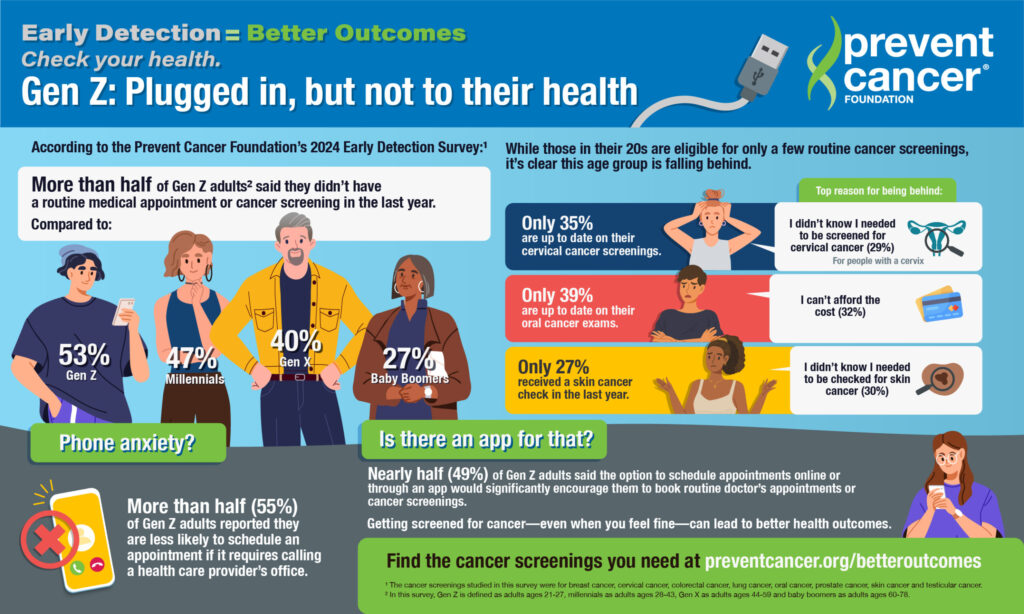
What You Should Know:
– A recent survey by the Prevent Cancer Foundation reveals a concerning trend among Gen Z (ages 21-27) – they are significantly lagging behind older generations in getting routine cancer screenings.
– This lag can potentially have serious health consequences, as early detection is crucial for successful cancer treatment.
Phone Anxiety and Knowledge Gaps Hinder Screenings
The survey highlights two key factors impacting Gen Z’s screening rates: phone anxiety and lack of awareness.
- Phone Anxiety: Over half (55%) of Gen Z reported being less likely to schedule appointments if it requires calling a healthcare provider’s office. This highlights the need for more accessible scheduling options, such as online booking or appointment apps.
- Lack of Awareness: Many Gen Z respondents were unaware of the recommended screenings for their age group. For example, only 35% of Gen Z women were up to date on cervical cancer screenings, and 27% hadn’t received a skin cancer check in the past year.
Early Detection Saves Lives
Despite Gen Z’s overall health, young-onset cancer cases are on the rise. A study published in BMJ Oncology showed a nearly 80% increase in new cancer cases among young adults between 1990 and 2019. Early detection allows for more treatment options and better survival rates.
Empowering Gen Z Through Education and Accessibility
The Prevent Cancer Foundation emphasizes the importance of early detection and encourages Gen Z to take charge of their health. They offer several resources:
- Information on Screenings by Age: Find out which screenings you need based on your age and gender.
- Free and Low-Cost Screening Programs: Locate programs offering affordable screening options.
- Personalized Screening Plan Tool: Create a customized plan tailored to your individual needs.
The Path Forward: Embracing Digital Solutions
The survey also indicates Gen Z’s preference for digital solutions. Nearly half expressed a desire for online appointment booking. Healthcare providers and organizations should prioritize these digital tools to improve accessibility and encourage younger generations to prioritize their health.

